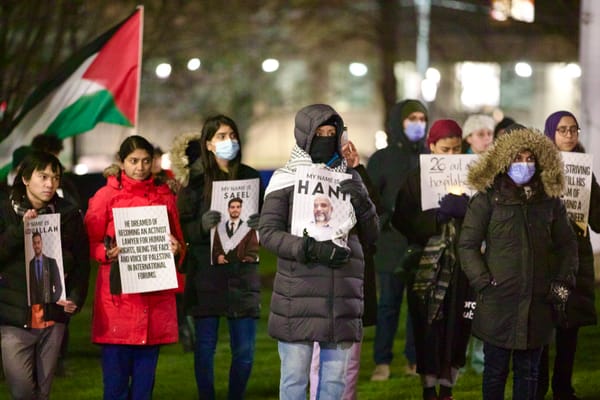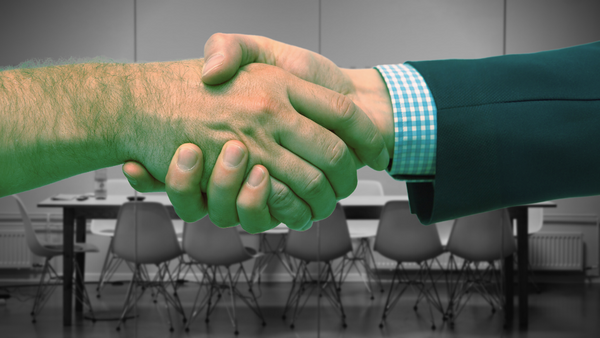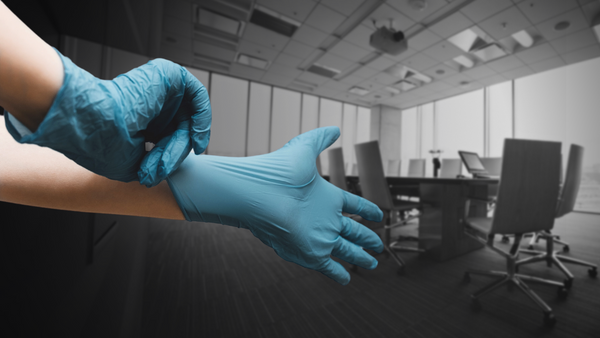If you drink wine, how do you know what’s in the bottle is actually wine?
Well, you know it’s wine because there are laws in place mandating proper labelling for alcohol. That’s why you can feel confident that when you buy vodka, beer or 12-year-old scotch, you know what’s in it and how strong it is, regardless of what the liquor store employee may tell you.
That’s just one of many advantages certain drug users have over others, who purchase substances that are criminalized.
I’m an anthropologist who both uses and studies drugs, and their place in our culture. The War on Drugs has been the de facto approach to drug use in our society for decades. But drugs are woven into every part of our society — they always have been, and likely always will be. Legalization is the best way to make drugs safer for those who choose to do them.
People typically believe drug laws were introduced to deter people from using dangerous and addictive substances. The real reason is more complicated.
Canada’s first drug laws were an integral part of colonization and Indigenous genocide, according to drug policy historian Susan Boyd, who wrote about the issue in her 2017 book “Busted: An Illustrated History of Drug Prohibition in Canada.” White Canadian lawmakers restricted Indigenous access to alcohol — brought to North America by colonizers — in 1876. These laws were selectively enforced by the government, through brokers of colonization including Indian Agents, prosecutors and informants, who had a monetary incentive to crack down because they pocketed half of the fines for selling alcohol to Indigenous people.
The next set of drug laws in Canada, which laid the groundwork for the blanket prohibition we see today, was put in place during an economic slump following the completion of the Canadian national railway. This economic downturn led to unrest among white labourers, who, along with capital interests eager to divide the working class, blamed Chinese Canadian labourers, portraying them as a threat to white Christian nationhood and women’s purity. This xenophobia led to a race riot in Vancouver in 1907 where Chinese businesses were destroyed.
In 1908, laws were passed banning opium, which allowed for the criminalization of Chinese workers by targeting their drug of choice. Meanwhile, liquid medicines containing heroin or morphine, often prescribed to white workers or housewives by doctors, continued to remain legal.
This is a familiar story: drug laws often stem from racist or classist origins. Prohibition is essentially just a means of selectively passing and enforcing laws in order to control and dominate certain segments of the population. This legacy continues today, where Indigenous, Black and other racialized people are disproportionately impacted by drug criminalization.
A century of conflation of immorality with drug use has entrenched the idea that drug users are dangerous, morally corrupt people. As long as the average Canadian believes illegal drugs are bad, and people who use and sell them deserve to be penalized, the harmful and ineffective mechanism of prohibition will continue to be employed to deal with the problems supposedly caused by drug use. However, researchers, myself included, are increasingly coming to the conclusion that drugs aren’t illegal because they’re dangerous, but rather that they’re dangerous because they’re illegal.
There’s no government body regulating what’s inside a tab of acid, or what percentage of a bag of “heroin” is actually heroin. People who use criminalized drugs may trust the person we get our drugs from, but that person may not actually know what’s in the bag either.
The drug market is unpredictable. Cheap, untested research chemicals are sometimes sold as, or mixed in with, drugs such as ketamine and cocaine. Meanwhile, dangerous cuts are arguably responsible for more “ecstasy” deaths than MDMA itself.
When Canada made opium illegal, it didn’t actually prevent people from using opium-derived drugs. But it did create a black market wherein more potent and dangerous versions of opium — such as heroin, and now fentanyl — were easier to transport and sell, as they physically take up less space. This is such a universal phenomenon when drugs are criminalized that it’s been called the “Iron Law of Prohibition.”
Today, most opioid overdoses are caused because incredibly strong drugs such as fentanyl are difficult to dose correctly even when the strength of a batch is known, let alone when someone is just guessing how much is in a bag. Access to a safe supply of heroin would prevent thousands of needless deaths.
Prohibition does not stop most people from using drugs, because let’s be honest, drugs are great! Humans have been using drugs for thousands of years. All over the world, humans use psychedelics like LSD and ayahuasca to learn, heal and grow, stimulants like caffeine to work harder, depressants like alcohol to forget our troubles, opioids to soften pain, and all of them to have fun.
I’ve spoken with hundreds of drug users over the last five years of my research. All of them have had both good and bad experiences with drugs, but none named drugs as the primary problem in their lives.
On the contrary, drugs can be a positive and integrated part of the lives of the vast majority of people who have secure housing and income. Many peoples’ lives have even been improved in meaningful long-term ways by their use of illegal drugs such as MDMA, LSD, psilocybin and ketamine.
My research participants have said things such as: “I’m thankful that I did [MDMA] more than I’m thankful that I’ve done anything else.” That person used MDMA to successfully treat severe PTSD after pharmaceutical drugs failed him. Does that sound like someone who should be arrested?
Even when someone is using a drug in a way that’s detrimental to themselves or those around them, they’re almost always doing so to cope with pain of one kind or another, and limiting their access to that coping mechanism, or making it less safe, is not going to stop that need.
If we care about people who use drugs — our friends, family and community members — we must ask what the benefit is to criminalization.
What kind of jail time should people using drugs get? Why is prison helpful to them, or their community? Do we think that will help them stop using? Is it currently deterring anyone else from using? Do we want to traumatize people with arrest and incarceration in order to “help” them stop using a drug they want to use? Why is it up to anyone else to tell people what they can and can’t do with their own bodies, anyway? Alcohol is responsible for more than half of drug-related hospitalizations annually, and tobacco for more than 39,000 Canadian deaths each year. Should we make them illegal?
We’ve been trying to stamp a select few drugs out of our society, using state force, for decades. That approach isn’t going well. Drugs are more widely available now than ever. Drugs manage to make their way into prisons, some of the most heavily guarded places on earth. Even if you think a society free from certain drugs is a laudable goal, why do you think it’s possible after so much failure?
Drug users, academics, policy makers, organizers and activists worldwide are all saying it’s time for a new approach, which places our health and safety first and actually listens to those impacted by drug laws.
It’s become a cliché for retired politicians and police chiefs to support drug decriminalization and safe supply after they retire, and as opportunities to cash in on the cannabis market grow. But so far, very few people in active positions of political power are pursuing what needs to be done: full legalization.
Decriminalization is an important first step. Just ask Portugal, which decriminalized all drugs in 2001, and has since seen large drops in HIV and hepatitis infection rates, problematic drug use, drug-related crime and incarceration, and overdose deaths.
However, without providing a legalized and regulated safe stock of drugs — heroin and other opioids, cocaine, and MDMA (ecstasy) in particular — users will still be left navigating a black market with a toxic, unregulated supply. Decriminalization will send fewer people to prison, but it will keep sending people to the morgue.
Furthermore, the drug market is global, and the harms of the War on Drugs are concentrated most acutely in the Global South due to violence between competing factions seeking to control the cocaine market. Trying to lower demand for cocaine is a battle long lost, and decriminalization doesn’t provide a new source for users to get their drugs.
Meanwhile, under a legalized framework, addiction would be dealt with similarly to the way we deal with alcohol addiction now: as a health issue rather than a criminal one. With legalized drug sales, tax revenue could be earmarked for treatment for those who want it, and comprehensive drug education, as opposed to the ineffective abstinence-only-based system we have now.
The key factors in addressing addiction are access to health care and housing, and more broadly, a full reckoning with colonialism, racism, economic exploitation and wealth inequality.
The truth our society refuses to acknowledge is that drugs are a permanent phenomenon in human life. We’ve tried to stamp them out, and it never works. Demand is here to stay, so drugs should be made under safe, regulated conditions. It’s time to legalize all drugs.






